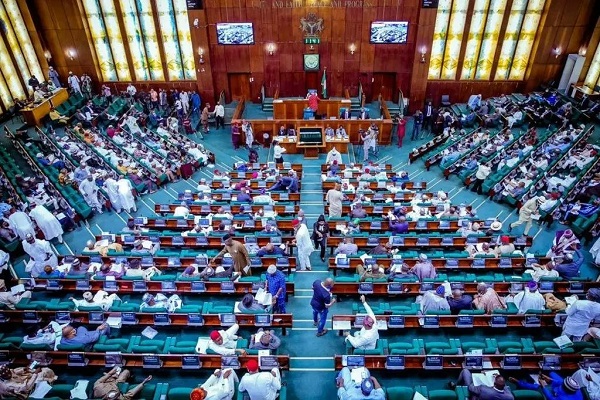…As Pakistan says Indian jets dropped bombs in its territory***
India says it launched air strikes against militants in Pakistani territory, in a major escalation of tensions between the two countries.
The government said strikes targeted a training camp of the Jaish-e-Mohammad (JeM) group in Balakot.
Pakistan said its jets had forced back the Indian planes and denied there were any casualties.
Relations between the two countries have been strained since an attack on Indian troops earlier this month.
India accuses Pakistan of allowing militant groups to operate on its territory and says Pakistani security agencies played a role in the suicide attack on 14 February, which was claimed by JeM and killed 40 Indian troops.
Pakistan denies any role and says it does not provide safe haven to militants.
Balakot is in Pakistan’s north-western Khyber Pakhtunkhwa province. Residents there told BBC Urdu they were woken by loud explosions. Pakistan condemned the strike and said it would respond “at the time and place of its choosing”.
The strikes are the first launched across the line of control – the de facto border that divides India-administered Kashmir from Pakistan-administered Kashmir – since a war between the two countries in 1971.
Both India and Pakistan claim all of Muslim-majority Kashmir, but control only parts of it. The nuclear-armed nations have fought three wars and a limited conflict since independence from Britain in 1947 – and all but one were over Kashmir.
What does India say happened?
Indian Foreign Secretary Vijay Gokhale told a news conference that the strikes had killed a “large number” of militants, including commanders, and had avoided civilian casualties.
“Credible intel [intelligence] was received that JeM was planning more suicide attacks in India. In the face of imminent danger, a pre-emptive strike became absolutely necessary,” he said.
Indian Prime Minister Narendra Modi did not directly mention the air strikes when he addressed a political rally in Rajasthan later on Tuesday but he told cheering crowds: “I understand your enthusiasm and your energy. Today is a day we bow before our heroes.”
India is due to hold elections by the end of May.
In Srinagar city, in Indian-administered Kashmir, residents expressed concerns over the spike in tensions. “Whatever is happening between these two hostile neighbours, it’s us who are in the middle of this war theatre,” Shabir Aakhoon, a banker, said.
Local reporter Sameer Yasir says a heavy military build-up in the past three days has caused panic. Anticipating full-scale war, civilians have stockpiled food and crowded petrol pumps, triggering traffic jams in many places, he adds.
In the meantime, Pakistan says India launched an airstrike on its territory early Tuesday that caused no casualties, while India said it targeted a terrorist training camp in a pre-emptive strike that killed a “very large number” of militants.
The overnight raid was the latest escalation between the nuclear-armed rivals since a deadly militant attack in the disputed Kashmir region earlier this month killed more than 40 Indian soldiers. Pakistan has denied involvement in the attack but has vowed to respond to any Indian military operation against it.
The Pakistan-based militant group Jaish-e-Mohammad claimed responsibility. The bomber, who made a video before the attack, was a resident of Indian Kashmir.
Kashmir is split between the two countries but claimed by each in its entirety.
India’s foreign secretary, Vijay Gokhale, told reporters in New Delhi that Indian fighter aircraft targeted Jaish-e-Mohammad camps in a pre-emptive strike after intelligence indicated another attack was being planned.
“Acting on intelligence, India early today stuck the biggest training camp of Jaish-e-Mohammed in Balakot,” he said. “In this operation a very large number of Jaish-e-Mohammed terrorists, trainers, senior commanders and Jehadis being trained were eliminated.”
Gokhale added: “The existence of such training facilities, capable of training hundreds of jihadis could not have functioned without the knowledge of the Pakistani authorities.”
However, Pakistan downplayed the severity of airstrike, saying its own warplanes had chased off the Indian aircraft, which had released their “payload” in a forested area, causing no casualties and no serious material damage.
Balakot police chief Saghir Hussain Shah told The Associated Press that he had sent teams to the area where the Indian bombs reportedly hit, which he described as a mostly deserted wooded area.
“There are no casualties, there are no damages on the ground because of the dropping of the bombs,” he said. There was no immediate explanation for the differing accounts, but India and Pakistan routinely contradict the other.
The Feb. 14 attack in Indian-ruled Kashmir was the worst attack on Indian forces since the start of the 1989 insurgency in Kashmir and came as Indian Prime Minister Narendra Modi is in the middle of a re-election campaign.
Insurgents have been demanding either outright independence or union with Pakistan. India routinely accuses Pakistan of arming and training militants who cross the mountainous Himalayan region. In the last year an increasingly bloody crackdown on insurgents in Indian-ruled Kashmir has escalated tensions in the troubled region.
Kashmir has been the cause of two previous wars between the uneasy neighbors. They fought a third war in 1979 over East Pakistan, which gained its independence with the help of India and became Bangladesh.
Pakistan has outlawed Jaish-e-Mohammed and seized its properties in south Punjab’s Bawahalpur area, including religious schools and mosques. India has demanded that Jaish-e-Mohammad leader, Azhar Masood, be listed as a terrorist by the United Nations, but has been stymied by China.
BBC with additional report from NBC





















